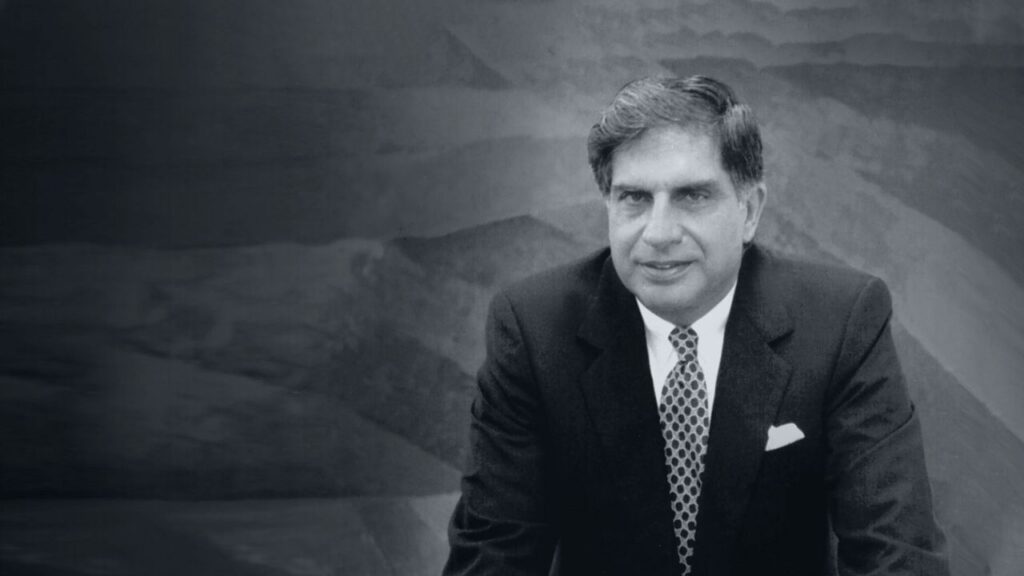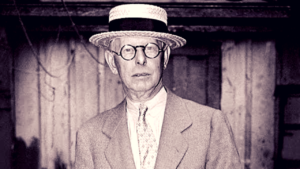Known for being the coolest business tycoon of India and he is not only a businessman but also an industrialist, investor, philanthropist- Sir Ratan Tata a recipient of two highest civilian awards of India – Padma Vibhushan and the Padma Bhushan.
Early Life
Being the son of Naval Tata, Ratan Tata actually is not a direct descendant of the Tata family. He has been adopted from an orphanage by his grandmother. Back then, he was just ten years and his younger brother Jimmy was seven. Both the brothers were looked after and raised by their grandmother.
In 1962, he got a B. Arch degree in architecture with structural engineering and then he completed the Advanced Management Program in 1975 from the Harvard Business School. Ratan Tata’s first job was at the Tata Steel which he took up in the year 1961. His first responsibility was to manage the blast furnace and shovel limestone.
Career
During the 70s, he was given the charge of companies like Nelco and Empress Mills. His journey began just as any other worker in the Tata group. The year 1991 was a turning point in the personal life of Ratan Tata. In the year of 1991, J.R.D Tata retired from the chairmanship of the company Tata Sons and took the name of Ratan Tata to be his successor to the throne.
When things were settled down, he started facing hardships from many company heads. It created a wave of apprehensions among people about his ability to lead the group of companies.
He faced many vicissitudes during his journey, but eventually he succeeded in improving the financial success of the industries and expanded the growth of the organization under his leadership. He transformed the management and vision of the division, and managed to bring in significantly larger dividends. He also setup an age of retirement and began replacing them. He asked all the employees to contribute something or the other to build the group of Tatas and take it to a different level. He continued successfully for 21 years by being the chairman of Tata Group. During this period, the company revenue grew several times, and earned a profit of more than 50 times.
As the Chairman of Tata Group, he was able to achieve international recognition and prestige for his company. The astounding financial success of the company brought the Tata Group to the New York Stock Exchange and under his supervision the corporation became a global brand by acquiring umpteen companies including Tetley, Jaguar Land Rover, and Corus.
In 2003, the idea of the world’s cheapest car was conceived by Ratan Tata on a rainy day after he saw a family of four on a bike. He set out on his quest for an affordable car using the resources of Tata Motors. Tata Nano was a failure because it was marketed as the worlds ‘cheapest car’, cost of mere 1,00,000 rupees. The major reason for it to fail is because people generally mull upon a car as a status and no one aspires to own the cheapest car in the world.
“To spark innovation, the prize is intended to communicate how important trying and failing can be. Failure is a gold mine for a company,” he says.
It was in 2011 when he decided to reward the best failed idea. Ratan Tata started an annual contest for his employees to reward the best failed idea in the company. His objective was to spark innovation and keep the company from avoiding risks. The motto behind this project is to reward failure and to build a culture of try-frugally-and-fail-fast among his employees.
Generous by Heart
Tata set a perfect example of generosity and leadership during the 26/11 attacks. He stood unarmed all alone outside the Taj hotel and supervised the activities to help the victims. He showcased his humane gesture by personally visiting the families of all the 80 employees who were killed or injured. He left no stone unturned to provide relief to the victims and even asked the families and dependents as to what they wanted him to do. Even the railway employees, the police staff and the pedestrians who had barely anything to do with Tata were covered by compensation.
As a Philanthropist
A supporter of education, medicine and rural development, Ratan Tata is a leading philanthropist. More than 65% of his share is invested in charitable trusts. According to him, raising the quality of life of Indians along with human development is absolute paramount.
In 2010, Tata Group companies and Tata charities donated $50 million for the construction of an executive centre at Harvard Business School. In 2014, the Tata Group gave ₹950 million to IIT, Bombay, the largest donation received in its history and formed the Tata Centre for Technology and Design to develop design and engineering principles suited to the Last year, he pledged ₹1,500 crore to fight the Covid-19 pandemic.
Our Favourite Quotes by Ratan Tata
“None can destroy iron, but its own rust can. Likewise, none can destroy a person but his own mindset can.”
“Take the stones people throw at you. And use them to build a monument.”
“I don’t believe in taking right decisions. I take decisions and then make them right.”
“There are many things that, if I have to relive, maybe I will do it another way. But I would not like to look back and think what I have not been able to do.”
Follow Us @




